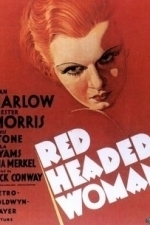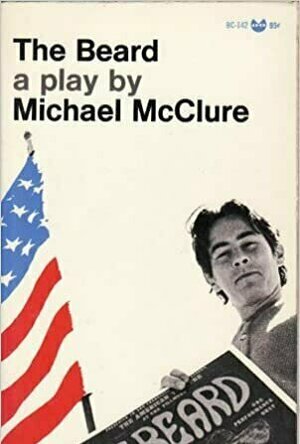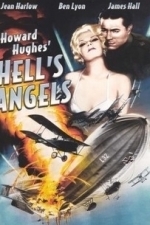Search
Search results
Chloe Sevigny recommended Red Headed Woman (1932) in Movies (curated)
John Waters recommended The Beard: A Play in Books (curated)
graveyardgremlin (7194 KP) rated Platinum Doll in Books
Feb 15, 2019
I've longed admired Jean Harlow. There's just something about her that is mesmerizing and infectious. She was someone who seemed to glow from within. While I am no expert and haven't seen all her films, I still have an idea of who she might have been. I was so excited for the opportunity to read <b>Platinum Doll</b>, but as I was reading, the thrill decreased until it was gone.
Ms. Girard's portrayal of Jean Harlow, born Harlean Harlow Carpenter, is hollow, naive and full of wide-eyed wonder at everything. While I will buy the latter two to a certain degree, I can't help feeling that Harlean was savvier and more in control than described in the book. She never grew in the book, and yes there was lip service that she had, but it wasn't felt. Everything seemed to fall into her lap or it was dumb luck. It never felt that Harlean had much gumption or incentive to go for it. Now that's not something I believe is true. Someone who takes on a dare, dyes her hair a shocking platinum blonde, and defies a controlling mother when she elopes isn't a person who stands back and allows things to happen to her. No, she makes them happen.
As for the plot, well, most of it is devoted to her first marriage with Charles "Chuck" McGrew, which was unfortunate as it was boring and redundant with basically the same thing happening over and over again. Yawn. Her mother, Jean Harlow, was shown as your typical stage mother, which I don't doubt she was, but I would also guess that their mother/daughter relationship was deeper and more complicated than that written. Not much is told about her work, just brief glimpses and mentions. Part of the problem was that it was just basic a to b to c telling. Change the names and certain circumstances and this could be about any ingenue in the 20s and 30s.
I could go more in depth, but the book didn't so why should I? I wish I'd passed on <b>Platinum Doll</b> and watched the glamorous Jean Harlow at work or read a biography about her instead. I appreciate what the author tried to do, but the attempt failed to bring to life the vivacity of this fascinating woman.
<i>2.5 stars</i>
<center><img src="http://rs32.pbsrc.com/albums/d6/satilanna/Stars/harlow_zpsp70exwm6.jpg?w=480&h=480&fit=clip"></center>;
Ms. Girard's portrayal of Jean Harlow, born Harlean Harlow Carpenter, is hollow, naive and full of wide-eyed wonder at everything. While I will buy the latter two to a certain degree, I can't help feeling that Harlean was savvier and more in control than described in the book. She never grew in the book, and yes there was lip service that she had, but it wasn't felt. Everything seemed to fall into her lap or it was dumb luck. It never felt that Harlean had much gumption or incentive to go for it. Now that's not something I believe is true. Someone who takes on a dare, dyes her hair a shocking platinum blonde, and defies a controlling mother when she elopes isn't a person who stands back and allows things to happen to her. No, she makes them happen.
As for the plot, well, most of it is devoted to her first marriage with Charles "Chuck" McGrew, which was unfortunate as it was boring and redundant with basically the same thing happening over and over again. Yawn. Her mother, Jean Harlow, was shown as your typical stage mother, which I don't doubt she was, but I would also guess that their mother/daughter relationship was deeper and more complicated than that written. Not much is told about her work, just brief glimpses and mentions. Part of the problem was that it was just basic a to b to c telling. Change the names and certain circumstances and this could be about any ingenue in the 20s and 30s.
I could go more in depth, but the book didn't so why should I? I wish I'd passed on <b>Platinum Doll</b> and watched the glamorous Jean Harlow at work or read a biography about her instead. I appreciate what the author tried to do, but the attempt failed to bring to life the vivacity of this fascinating woman.
<i>2.5 stars</i>
<center><img src="http://rs32.pbsrc.com/albums/d6/satilanna/Stars/harlow_zpsp70exwm6.jpg?w=480&h=480&fit=clip"></center>;
RəX Regent (349 KP) rated Hell's Angels (1930) in Movies
Feb 19, 2019
Big budget, elaborate air combat scenes which resulted in several deaths and Gimmick after gimmick… This has to be the Howard Hughes’ World War 1 epic, Hell’s Angels.
Where to begin?
Well, we follow the Routledge two brothers as they join the war effort and the Royal Air Corps. in 1914 and whilst one is a somewhat cowardly womaniser, his brother is the noble heroic type who spends the film being screwed over bey everyone in one way or another, but most notably by his girlfriend, Jean Harlow, who is so annoyingly wrong for him that it is a relief when he has heart is broken by her in the third act.
But like mots aspects of this plot, this is as messy and disjointed as everything else. We are given a story line to follow for two hours, as Hughes indulges his legendary love of flying to create some of the best dog fight sequences ever committed to film. They are real, epic and effective in conveying the thrilling danger of these world war one battles.
But this is a film of gimmick. Pushing the pre-code envelope with sex and bad language, this was originally conceived as a silent movie and was re-written and re-shot to become the sound movie whcih we have to today and there in clearly lies the problem. What we end up is a movie cobbled together, with silence sequences being converted to sound, the poor acting from its star James Hall as the idealistic Roy Routledge, Jean Harlow, replacing the original silent star Gretta Nissen for this sound version, excelling in her role as his trampy girlfriend and Ben Lyon as the weaker brother, Monte, but the real star of this show are the special effects.
But of the human stars, Harlow, presented here in the only colour footage known to exist of the tragic star, who would die at the young age of 26 just seven years later, probably delivers one of the best performances in the whole picture, certainly outshining her male co-stars.
Of the special effects though, the use of 2-tone Technicolor, which was actually shot with the Metrocolor system but processed by Technicolor, in one sequence as the group are all together at a party, as well as the classical use of tints during some other scenes, add a vibrancy to the project. But this also can have a jarring effect, especially as we leave the colour scenes and wrap up thet sequences in black and white.
But the model effects, notably the munition raid at the end and the Zeppelin bombing London scenes are spectacular, especially for the time. The other notable gimmick which has yet to be transferred to the small screen, was the original use of what was called Magnascope back in 1930.
This was obviously only used at high end theaters but this paved the way for what IMAX are doing now, by blowing up the aerial scenes into a larger screen format from the 1.20:1 ratio which the the rest of film was presented. But when you add all this up you have got a mess!
Magnascope, technicolor scenes, tinted scenes, daring aerial battles, a half arsed love story and an image of world war which was a kin to that of Michael Bay’s Pearl Harbor’s (2001) view of World War 2! But this is what this is. An early, lavish popcorn blockbuster, with little to offer but cinematic thrills, which it succeeds at without any doubt.
The action is great, the plot is mediocre to say the least but as film, it does offer a brief insight into how cinema audiences saw the Great War back in 1930 and you can not help but think that this audience was only nine years away from the next one as we watch this.
pictureBut the ending was grim, with noble ends rounding off a story of brotherly love and love of duty and country, seems overblown considering what we had had to sit through but still, by the end, is anybody really routing for the Routledge brothers to have a happy ending?
I certainly was not. But this ending is the nearest thing that this film has to a story arc, as is pays off the opening act where Roy risks his life fighting a duel for his cowardly brother against the very German officer who is about to have them executed.
Duty wins out and Monte sees the light at the end after a very melodramatic death scene.
But having said all that, this film is worth it for the action alone and for film buffs, the only colour footage of Jean Harlow.
Where to begin?
Well, we follow the Routledge two brothers as they join the war effort and the Royal Air Corps. in 1914 and whilst one is a somewhat cowardly womaniser, his brother is the noble heroic type who spends the film being screwed over bey everyone in one way or another, but most notably by his girlfriend, Jean Harlow, who is so annoyingly wrong for him that it is a relief when he has heart is broken by her in the third act.
But like mots aspects of this plot, this is as messy and disjointed as everything else. We are given a story line to follow for two hours, as Hughes indulges his legendary love of flying to create some of the best dog fight sequences ever committed to film. They are real, epic and effective in conveying the thrilling danger of these world war one battles.
But this is a film of gimmick. Pushing the pre-code envelope with sex and bad language, this was originally conceived as a silent movie and was re-written and re-shot to become the sound movie whcih we have to today and there in clearly lies the problem. What we end up is a movie cobbled together, with silence sequences being converted to sound, the poor acting from its star James Hall as the idealistic Roy Routledge, Jean Harlow, replacing the original silent star Gretta Nissen for this sound version, excelling in her role as his trampy girlfriend and Ben Lyon as the weaker brother, Monte, but the real star of this show are the special effects.
But of the human stars, Harlow, presented here in the only colour footage known to exist of the tragic star, who would die at the young age of 26 just seven years later, probably delivers one of the best performances in the whole picture, certainly outshining her male co-stars.
Of the special effects though, the use of 2-tone Technicolor, which was actually shot with the Metrocolor system but processed by Technicolor, in one sequence as the group are all together at a party, as well as the classical use of tints during some other scenes, add a vibrancy to the project. But this also can have a jarring effect, especially as we leave the colour scenes and wrap up thet sequences in black and white.
But the model effects, notably the munition raid at the end and the Zeppelin bombing London scenes are spectacular, especially for the time. The other notable gimmick which has yet to be transferred to the small screen, was the original use of what was called Magnascope back in 1930.
This was obviously only used at high end theaters but this paved the way for what IMAX are doing now, by blowing up the aerial scenes into a larger screen format from the 1.20:1 ratio which the the rest of film was presented. But when you add all this up you have got a mess!
Magnascope, technicolor scenes, tinted scenes, daring aerial battles, a half arsed love story and an image of world war which was a kin to that of Michael Bay’s Pearl Harbor’s (2001) view of World War 2! But this is what this is. An early, lavish popcorn blockbuster, with little to offer but cinematic thrills, which it succeeds at without any doubt.
The action is great, the plot is mediocre to say the least but as film, it does offer a brief insight into how cinema audiences saw the Great War back in 1930 and you can not help but think that this audience was only nine years away from the next one as we watch this.
pictureBut the ending was grim, with noble ends rounding off a story of brotherly love and love of duty and country, seems overblown considering what we had had to sit through but still, by the end, is anybody really routing for the Routledge brothers to have a happy ending?
I certainly was not. But this ending is the nearest thing that this film has to a story arc, as is pays off the opening act where Roy risks his life fighting a duel for his cowardly brother against the very German officer who is about to have them executed.
Duty wins out and Monte sees the light at the end after a very melodramatic death scene.
But having said all that, this film is worth it for the action alone and for film buffs, the only colour footage of Jean Harlow.



